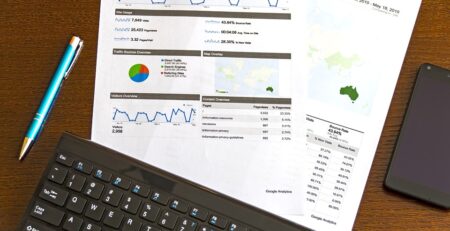Internal link building is a crucial aspect of SEO that is often overlooked by many website owners. While external backlinks are important for increasing your website’s authority, internal links play a key role in boosting your website’s SEO performance. In this article, we’ll explore the secret to boosting your SEO with internal link building and reveal the incredible results it can produce.
The Power of Internal Link Building
Internal link building involves linking one page of your website to another page within the same domain. These internal links help search engine crawlers to understand the structure of your website and the relationship between different pages. When done correctly, internal link building can benefit your SEO in several ways:
- Improved Indexing: Internal links help search engines discover and index new pages on your website more easily. They also help search engine crawlers to understand the relevance of each page and its importance within the site’s hierarchy.
- Enhanced Page Authority: By linking to important pages from other pages within your website, you can pass on authority and relevance to those linked pages. This can help to improve the ranking of those pages in search results.
- Boosted User Engagement: Internal links can guide users to other relevant pages on your website, increasing the time they spend on your site and reducing bounce rates. This can have a positive impact on your SEO performance.
The Secret to Effective Internal Link Building
Now that you understand the power of internal link building, let’s uncover the secret to making it work effectively for your SEO strategy. The key lies in creating a well-structured and logical internal linking system that delivers value to both search engines and users.
Here are some best practices to follow when implementing internal link building:
- Use Descriptive Anchor Text: When creating internal links, use descriptive anchor text that clearly indicates the topic of the linked page. This helps search engines understand the context and relevance of the linked page.
- Focus on Relevance: Link to pages that are contextually relevant to the content of the linking page. This helps to establish a logical flow of information and enhances the overall user experience.
- Optimize Link Placement: Place internal links within the body content of your web pages, where they naturally fit into the context of the content. Avoid over-optimizing and spammy linking practices.
- Use a Reasonable Number of Links: While internal linking is important, it’s crucial to avoid overloading your pages with too many links. Keep the number of internal links per page reasonable and focus on quality over quantity.
Unbelievable Results of Internal Link Building
So, what kind of results can you expect from implementing an effective internal link building strategy? The impact can be truly remarkable. By strategically linking your website’s pages, you can:
- Boost Organic Traffic: Internal link building can lead to increased organic traffic as search engines better understand the structure and relevance of your website’s content, resulting in higher rankings for targeted keywords.
- Improve Keyword Rankings: By strategically linking to specific pages using targeted anchor text, you can help those pages rank higher for their respective keywords, ultimately driving more organic traffic to your site.
- Enhance User Experience: Well-placed internal links can guide users to relevant content, keeping them engaged and encouraging them to explore more of your website. This can lead to higher conversion rates and improved user satisfaction.
- Establish Site Authority: A strong internal linking structure can help to establish the authority of your website, making it more attractive to search engines and increasing the likelihood of ranking for competitive keywords.
Conclusion
Internal link building is a powerful yet often overlooked SEO strategy that can deliver incredible results for your website. By carefully planning and implementing an effective internal linking system, you can improve your website’s overall SEO performance, drive more organic traffic, and enhance the user experience. Don’t underestimate the impact of internal link building – it could be the secret to taking your SEO to the next level!
FAQs
How many internal links should I include on each page?
There is no set number of internal links that you should include on each page. The key is to focus on quality over quantity and ensure that your internal links are contextually relevant and provide value to the user.
Can internal link building improve my website’s search engine rankings?
Yes, internal link building can have a positive impact on your website’s search engine rankings. By strategically linking your pages and using descriptive anchor text, you can help search engines better understand the relevance and importance of each page, potentially leading to higher rankings for targeted keywords.
What are some common mistakes to avoid when implementing internal link building?
Some common mistakes to avoid include over-optimizing anchor text, linking to irrelevant pages, and overloading your pages with too many links. It’s important to keep your internal linking strategy natural and user-focused to achieve the best results.











Leave a Reply